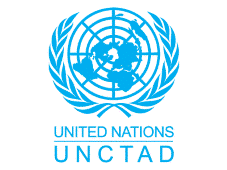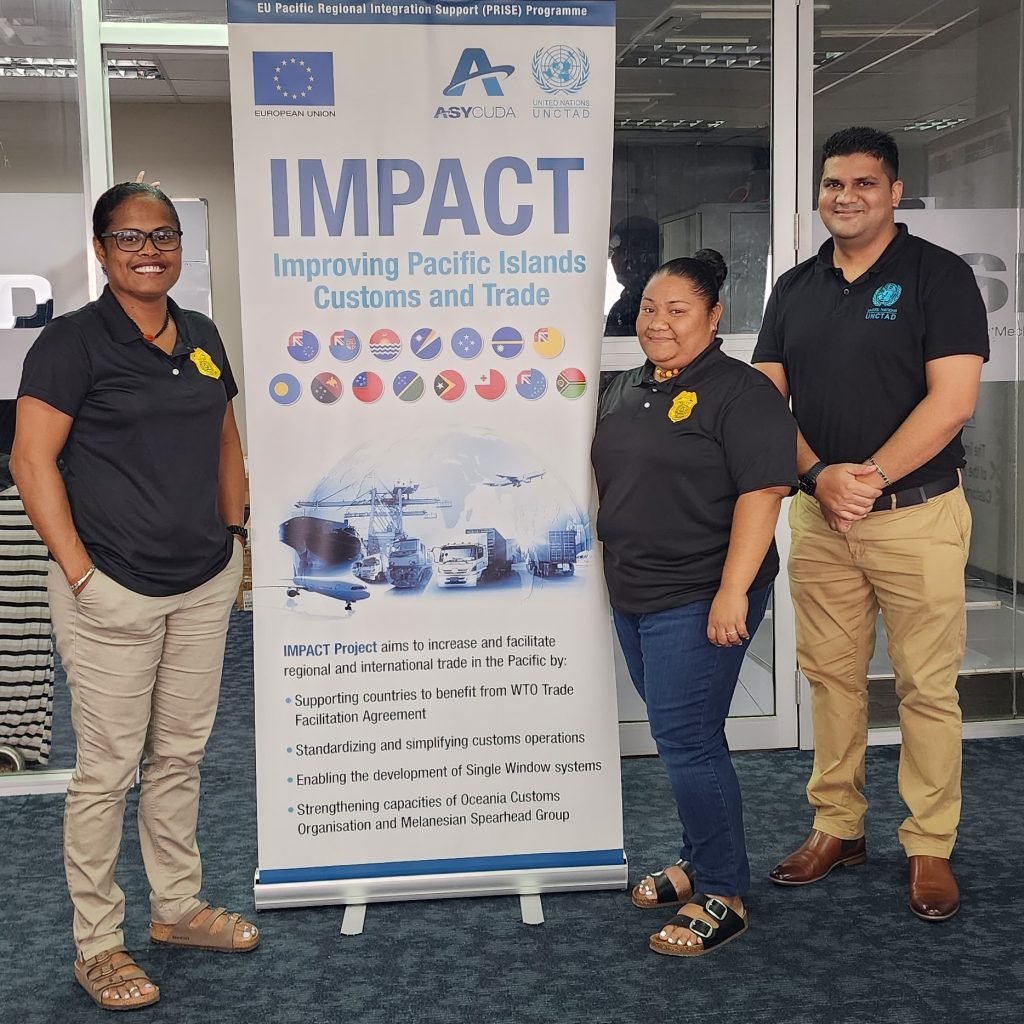

Improving Pacific Islands Customs And Trade
The project is funded by the European Commission (EC) under the 11th cycle of the European Development Fund (EDF) through the ‘Pacific Regional Integration Support’ Programme (PRISE) that supports greater economic integration between the small and scattered countries of the region and between the Pacific and the global economy. In doing so, PRISE directly responds to the regional economic integration goals of the Framework for Pacific Regionalism.
The “Improving Pacific Islands Customs and Trade” (IMPACT) Project is a component of PRISE to implement the Outcome on improved trade facilitation and border/customs procedures. IMPACT is managed and implemented by UNCTAD. The project covers 15 countries in the Pacific and is operational until 2024.
To achieve the project objectives, IMPACT will deliver the following Results:
Result 1: Improved Pacific ACP country ability to benefit from WTO priority measures
Assist PACP countries comply and benefit from trade facilitation reforms, in particular with regard to countries’ notified Category C provisions of the World Trade Organisation (WTO) Trade Facilitation Agreement (TFA).
Result 2: Harmonised Customs operations across all Pacific ACP
Harmonisation of customs operations across all countries including extending the range and scope of customs management systems (including the deployment of the Automated System for Customs Data [ASYCUDA] in the Federated States of Micronesia, Marshall Islands, and Palau), improving Electronic Data Interchange (EDI) between traders and Customs leading to greater speed and efficiency in port handling and generating trade data that can be used for statistical economic analysis.
Result 3. National Single Window systems requirements defined, and guidelines prepared
The project will support ongoing efforts in Fiji, Papua New Guinea, Timor-Leste and Vanuatu to establish Single Windows (SW) systems and will work closely with Samoa, Tonga and Solomon Islands to create pathways for SW establishment as a precursor to rollout across the region.
Result 4. Strengthened technical understanding, leadership and statistical capacity
Capacity building to strengthen technical understanding, leadership, as well as statistical capacity to drive further customs reform, including of regional bodies Oceania Customs Organization and the Melanesian Spearhead Group.


